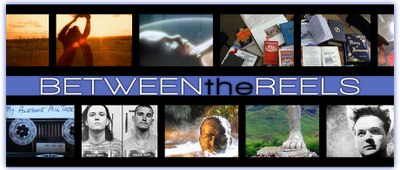
"I am always reluctant to single out some particular feature of the work of a major filmmaker because it tends inevitably to simplify and reduce the work. But in this book of screenplays by Krzysztof Kieslowski and his co-author, Krzysztof Piesiewicz, it should not be out of place to observe that they have the very rare ability to dramatize their ideas rather than just talking about them. By making their points through the dramatic action of the story they gain the added power of allowing the audience to discover what's really going on rather than being told. They do this with such dazzling skill, you never see the ideas coming and don't realize until much later how profoundly they have reached your heart."
Stanley Kubrick
January 1991
There's always been a tug and pull of sorts with my love of film. On one spectrum there's Toolbox Murders & Point Break. On the other end there's the filmmaker we're talking about now. Frank Zappa once said: "A mind is like a parachute. It doesn't work if it isn't open." This is a view I have adopted into both film and music for quite some time. The only problem I have is the growing state of gray haired film criticism. On one corner you have someone declaring that Apatow is the king of the modern comedy. The next corner you have another person listing off 20 obscure foreign films and blasting American cinema. Even though it didn't have much to offer last year. Now there's a delicious dilemma for ya. I'm not trying to be prude, but I have more respect for the person who owns a copy of Cannibal Ferox and Nashville than a person who solely collects horror or the person who solely collects 'cinematic art'. Snacks and vegetables can both be on the menu.
Which brings us to today's article.
Flashback to 2003 when I was browsing the net and I came across an article written by one Roger Ebert. An article in which he name dropped Kubrick. But what was so interesting was not what was said about Kubrick so much as what Kubrick had said about another filmmaker. The film was The Decalogue and the Kubrick quotation was that it was the only masterpiece he could name in his lifetime.
There's a certain fascination on what films left an indelible impression on filmmakers' minds. For Lynch it was seeing Sunset Boulevard. For PT Anderson it was Network. You get a sense of the throughline that connects the themes and characters in those directors' respective works. Or at the very least, using bits and pieces as inspiration.
Getting hit with Kieslowski was alot like discovering Hitchcock as a kid. Like Hitch, it wasn't the plots that drew me in. It was the visual aspect. The vivid colors. The haunting scores in Decalogue, Three Colors & Double Life of Veronique. Enhancing the mood and atmosphere that exist within the framework of each story. Ambiguity can sometimes be used to a haphazard extent. Kieslowski uses it to create emotional jigsaw puzzles. Reveling in the unexplained but never to the point of becoming overwrought.
I'd write more on the films individually, but let's be honest. No amount of words can make up for the beauty within these works of art. For the uninitiated, start with Three Colors. Criterion has recently put out a fantastic blu ray/DVD set containing all three films.




